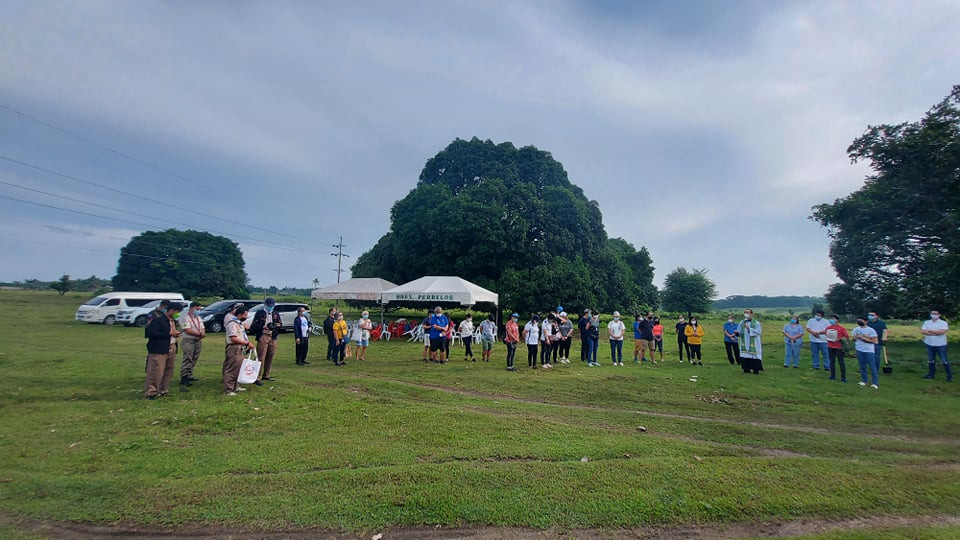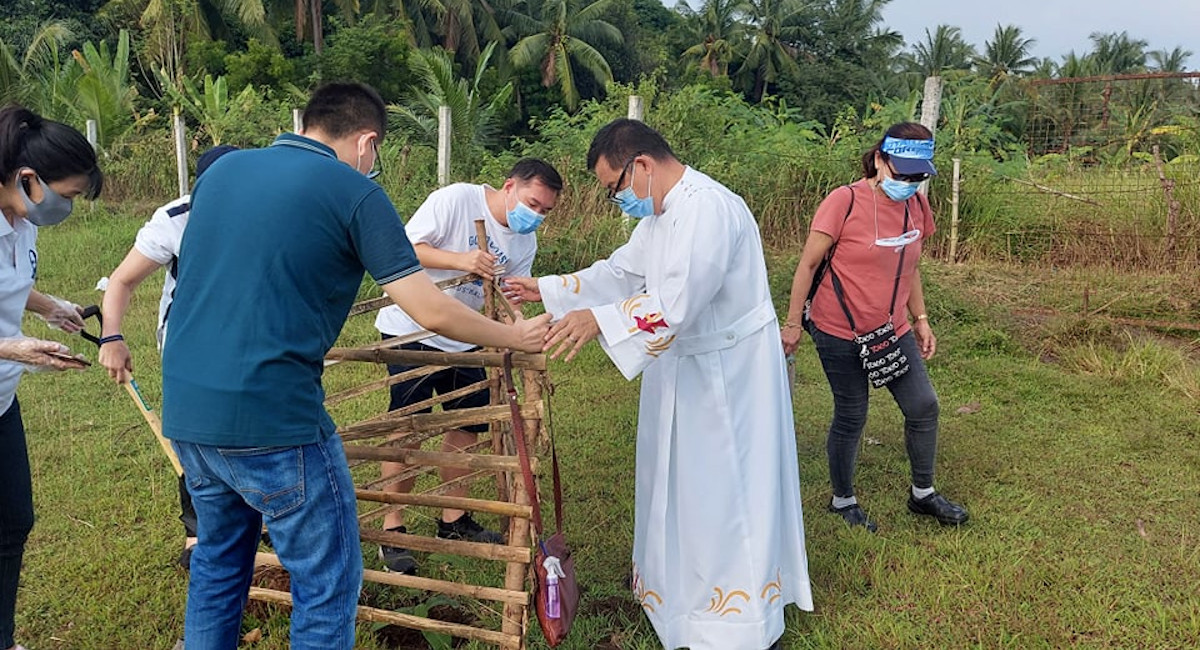
The tree planting activity turned into a picnic when the host served lechon (roasted pig), steamed shrimp, and fresh young coconuts. For those who still had energy to lift, they went home carrying bananas to boil or fry. For the members of the parish community, the whole experience gave the parish outing a new twist. It was very relaxing to find themselves in an expansive property, and planting trees is literally a participation in re-creation!
The activity was an initial response to the call of the Archdiocese of Cebu to actively participate in the archdiocesan project, “500 legacy trees for 500 years of Christianity”. The Philippines is celebrating 500 years of Christianity in 2021. The whole country, especially Cebu, commemorates the planting of Christianity in Cebu in 1521. The dream is to plant one million fruit-bearing trees all over the Archdiocese of Cebu, which consists of 170 parishes spread across the islands of Cebu, Bantayan, and Camotes.

Profood International Corporation, the number one manufacturer of dried mangoes and other fruits in the Philippines, supplies the mango seeds, while the University of Cebu through its five campuses in Cebu City and Mandaue City provides the much-needed space for the nurseries. Sacred Heart Parish is tasked to deliver at least 500 seedlings to every willing parish, while the Department of Agriculture, and the Department of Environment and Natural Resources provide the technical support.
With the assurance of Profood that they will buy all the fruits the trees will bear in the future, the initiative has been labeled as a “seedling-to-marketing” project. Hence, the project has set up a monitoring system to ensure fruition. The Chairman of the Cebu Archdiocesan Commission on Environmental Concern, Fr Murphy Sarsonas, in cooperation with the Sacred Heart Parish, will monitor the progress of the project, from the growth of the seedlings into fruit-bearing trees to ensuring that the fruits will be of good quality to sell. For now, Fr Murphy, an environmental activist, goes around the whole archdiocese giving orientation seminars on how to properly plant mango and guyabano seedlings.
As a Jesuit parish, the Sacred Heart Parish community finds itself in an opportune time to put into action its response to the Society of Jesus’ Universal Apostolic Preference to collaborate in the care of our common home, and to Pope Francis’ exhortation in Laudato si’ to take concrete steps in saving Mother Earth from further destruction. Planting one million fruit-bearing trees in the whole Archdiocese of Cebu is never a daunting challenge if it means preparing a better future for all.







